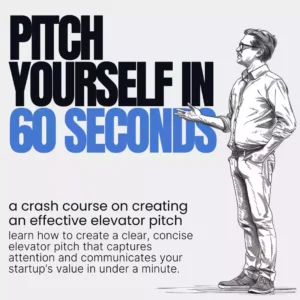TL;DR
Investors are looking for impactful storytelling, compelling narratives, strategic data presentation, and strong personal charisma during Demo Day. To increase the likelihood of securing funding, focus on making a strong first impression, utilizing technology, and perfecting your pitch.
Introduction to Demo Day
Demo Day represents a significant milestone for startups, marking the end of an intense period of preparation and the beginning of potential opportunities for growth. Investors attend these events to discover promising new ventures and decide where to allocate their resources. To make a positive impact, startups need to deliver a polished and engaging presentation, capturing the interest of potential investors from the outset.
Making a Strong First Impression
The first impression can make or break a startup’s chances during Demo Day. Investors often form opinions within the first few seconds, making initial interactions crucial. Founders should pay attention to their appearance, body language, and opening statements to ensure they convey confidence and professionalism.
For instance, starting with a captivating story or an intriguing fact can immediately grab the audience’s attention. A startup working on a sustainable packaging solution might open with a striking statistic about plastic waste to emphasize the urgency and relevance of their innovation.
In addition to verbal communication, physical presentation also matters. Clear and concise slides with minimal text and impactful visuals can enhance the message without overwhelming the audience.
Crafting a Compelling Narrative
A compelling narrative is essential for engaging investors. It should weave together the startup’s mission, vision, and the problem they aim to solve. This narrative helps investors understand the purpose behind the innovation and envision the startup’s potential impact.
For example, a startup developing an advanced language learning app could outline the common struggles people face when learning new languages and then present their unique solution. This approach not only highlights the need for the app but also showcases its innovative features.
Founders should ensure their narrative flows logically, covering the journey from problem identification to the current solution. Real-life testimonials or use cases can be particularly effective in illustrating the product’s effectiveness and appeal.
Leveraging Technology
Modern technology can enhance presentations and help convey complex concepts in an accessible manner. Startups should utilize available tools to create dynamic, visually appealing demos that showcase their product’s functionality and potential.
Interactive demos, videos, or live product demonstrations can significantly impact investors by providing a tangible sense of the product’s capabilities. For example, a startup focusing on augmented reality could incorporate a live demo to illustrate how their technology transforms a simple environment into an immersive experience.
However, it’s essential to practice thoroughly to avoid technical glitches that could undermine the presentation. Technical issues can distract from the startup’s message and leave a negative impression on investors.
Presenting Data Strategically
Data is crucial in convincing investors of a startup’s viability and potential for growth. Founders should present data that highlights market size, growth potential, customer acquisition cost, and revenue projections. This information helps investors assess the financial prospects and scalability of the venture.
Visual aids like charts and graphs can make data more digestible and emphasize key points effectively. For example, a startup with a subscription-based model could show a graph of user growth over time, illustrating steady and promising growth trends.
While presenting data, it’s essential to be transparent about assumptions and estimations. Overly optimistic or unrealistic data can damage credibility. Investors appreciate honesty and a well-grounded understanding of the market dynamics.
Perfecting Your Pitch
The pitch is the cornerstone of any Demo Day presentation. It needs to be concise, clear, and compelling. Founders should practice delivering their pitch to ensure they can convey their message confidently and eloquently within the allotted time.
A well-structured pitch typically includes:
- A brief introduction of the founders and their roles
- A clear statement of the problem
- An explanation of the solution and its unique value proposition
- Key market insights and competitive landscape
- Financial projections and funding requirements
Rehearsing in front of a mirror or a small audience can help refine the delivery. Feedback from peers or mentors can provide valuable insights for improvement. The goal is to present a polished, confident message that resonates with investors.
Questions to Consider
- Is my opening statement strong enough to capture immediate interest?
- Does my narrative clearly communicate the startup’s mission and vision?
- How can I leverage technology to enhance my presentation?
- Am I presenting data in a way that is both transparent and compelling?
- Have I structured my pitch to cover all key points concisely?
- What feedback can I gather to further refine my presentation?
Concluding Thoughts
Preparing for Demo Day is a significant endeavor requiring substantial effort and attention to detail. By focusing on making a strong first impression, crafting an engaging narrative, using technology effectively, presenting data strategically, and perfecting your pitch, you can significantly increase your chances of attracting investor interest and securing funding.
Remember, the goal is not just to present but to connect with investors on a meaningful level, demonstrating the potential impact and viability of your startup. Use this opportunity to showcase your passion, innovation, and vision for the future.

